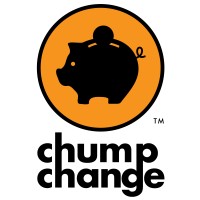Most of you are well aware of the Major League Baseball
(MLB) plan to shutter 46 Minor League Baseball (MiLB) teams which represents
over 25% of the affiliated franchises in the game. The minor league cities and stadiums affected
are none-too-pleased with this concept which was the brainchild not of
Commissioner Rob Manfred, but the mantra of since-deposed Houston Astros
executive Jeff Luhnow.
On Thursday MiLB sent its letter to MLB suggesting ways to
negotiate wholesale changes and how to implement them short of simply locking the
gates and removing MLB team affiliations.
As a reminder, the New York Mets under the proposed plans would stand to
lose the Binghamton Rumble Ponies and the Kingsport Mets.
MiLB suggested that rather than padlocking doors, it would
make more sense to visit the proposed team castoffs to see what stadium
improvements and what travel arrangements needed to be made to represent the
sport more professionally and to give the players aspiring to work their way up
the ladder a more reasonable schedule to allow for adequate rest between
games. Should a team not have the money to
make necessary improvements, then the franchise affiliation would transfer to
MiLB who could make those suggested changes at their expense. The MiLB Players Development Board (PBC)
would even undertake moving stadiums to new cities that are less strenuous for travel
and would ensure that the playing conditions meet agreed-upon standards. This suggestion seems eminently reasonable
and would allow affiliated teams to maintain their player development.
MLB is strongly behind eliminating short season baseball as they
feel it creates too much of a payroll burden for the parent ballclubs to have
to absorb so many additional players, most of whom will never make the majors
anyway. The savings calculated amounted
to 1/10 of 1% of MLB payroll, saving clubs worth more than a billion dollars
about $350,000 in payroll. (FYI, one
major league ballplayer is paid almost $600,000). MiLB wants to work on creative solutions to
help preserve this echelon while being respectful of its expense. MLB thus far has shown no flexibility.
Apparently MLB’s new idea is to create a self-funded Dream
League, essentially a venue for wannabe ballplayers that would require not a
single penny of MLB team money to operate.
This concept already exists and is known as an Independent League team
such as the Long Island Ducks.
Finally, there’s a section in the letter about the burden
the MLB team faces when it comes to funding the minor league teams. As it stands today, MLB teams only pay the
people who are directly on their payroll, but do not contribute at all to
stadium operations, parking, security or the many other expenses necessary to keep
the ballclub in question running. It is
a false narrative about the insidious burden of having affiliated minor
leagues. As it is, the payroll for minor
leaguers falls below federal minimum wage guidelines, so it’s not as if the
players are taking these jobs over the ones at Walmart for the financial
benefits.
It's highly unlikely MLB will respond at all to this letter
but the points needed to be made if there’s any hope of getting a groundswell
of local and nationwide support for the callous plan put forth by the known
cheater and his business’ figurehead.




What ever happened to the 'cost in doing business' as part of a business?
ReplyDeleteThis whole mess makes me both pissed and sick.
I have a solution:
ReplyDeleteLeave the situation as is, and index overall costs to inflation. Then ask the current major league players making over $10 million a year to pony up 1% to help out their minor league brethren. And owners match that. %-wise, not a lot from either party, and it could be used in some agreed upon way (stadium upgrades, salary increases).
The problem is: the rich players and owners are Scrooges.
idk, the MLB answer to to the MiLBN has much merit.
ReplyDelete